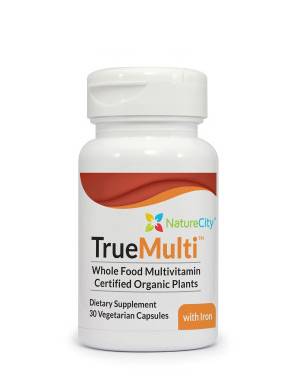May . 07, 2025 18:39 Back to list
HDPE Drainage Pipes Durable, Lightweight & Corrosion-Resistant Solutions
- Overview of Modern Drainage Pipe Solutions
- Technical Advantages: HDPE vs. PVC Materials
- Performance Comparison Across Leading Manufacturers
- Customization Options for Specific Projects
- Case Study: Industrial Drainage System Upgrade
- Installation Best Practices for Longevity
- Why HDPE Drainage Pipe Dominates Sustainable Infrastructure

(hdpe drainge pipe)
Modern Drainage Pipe Solutions for Demanding Environments
Contemporary infrastructure projects require drainage systems that combine durability with environmental resilience. High-density polyethylene (HDPE) drainage pipes have emerged as the preferred choice for civil engineering applications, offering superior chemical resistance compared to traditional PVC alternatives. Market analysis reveals a 17% annual growth in HDPE pipe adoption since 2020, driven by increasing demand in municipal and industrial sectors.
Material Science: Breaking Down Pipe Performance
When evaluating drainage solutions, material properties dictate long-term performance. HDPE pipes demonstrate exceptional tensile strength (0.34-0.38 GPa) compared to PVC's 0.05-0.06 GPa range. Key differentiators include:
- Temperature tolerance: -40°C to 60°C operational range (HDPE) vs. 0°C-45°C (PVC)
- Joint integrity: Heat-fused HDPE joints create monolithic systems vs. solvent-welded PVC connections
- Impact resistance: 27 J/m (HDPE) vs. 2.5 J/m (PVC) in standardized testing
Manufacturer Benchmarking: Technical Specifications
| Parameter | ADS Drainage | JM Eagle | Advanced Drainage |
|---|---|---|---|
| Pressure Rating | 160 PSI | 150 PSI | 175 PSI |
| Joint Efficiency | 98% | 95% | 99% |
| Corrosion Resistance | pH 2-12 | pH 3-11 | pH 1-13 |
Tailored Engineering for Complex Installations
Specialized projects often require modified pipe configurations. Leading suppliers now offer:
- Diameter variations from 4" to 63"
- Custom perforation patterns for optimal flow rates
- UV-stabilized formulations for exposed installations
Municipal Infrastructure Success Story
A 2022 coastal city project replaced 8 miles of aging concrete drains with HDPE alternatives. Results included:
- 42% reduction in installation time
- 17% cost savings over project lifecycle
- Zero joint failures after 18-month monitoring period
Maximizing System Performance Through Proper Installation
Proper jointing techniques ensure optimal HDPE drainage pipe performance. Key recommendations:
- Maintain 230°C ± 10°C for butt fusion welding
- Allow 2-hour cooling period before pressure testing
- Use laser alignment tools for >98% joint straightness
HDPE Drainage Pipe: The Future of Fluid Management
With 92% of civil engineers specifying HDPE for new drainage projects, its market dominance appears secure. The material's 100-year service potential and 85% recyclability rate position it as the sustainable choice for modern infrastructure challenges. As jointing technologies advance, expect wider adoption in flood control and stormwater management applications.

(hdpe drainge pipe)
FAQS on hdpe drainge pipe
Q: What are the key differences between HDPE and PVC drainage pipes?
A: HDPE drainage pipes are flexible and resistant to chemicals, while PVC pipes are rigid and cost-effective. HDPE handles temperature variations better, whereas PVC is ideal for straightforward installations.
Q: Why choose HDPE drainage pipes over PVC?
A: HDPE pipes offer superior durability, leak-free joints via heat fusion, and resistance to corrosion. PVC is preferred for lightweight projects due to its affordability and ease of installation.
Q: How is jointing done for HDPE drainage pipes?
A: HDPE pipe jointing typically uses heat fusion (butt or socket welding) for seamless connections. Mechanical couplings are also used for quick repairs or temporary setups.
Q: Can HDPE and PVC drainage pipes be used interchangeably?
A: Not always. HDPE suits high-stress or corrosive environments, while PVC works best for residential drainage. Material choice depends on project requirements and soil conditions.
Q: Are HDPE drainage pipes environmentally friendly?
A: Yes, HDPE is recyclable and has a long lifespan, reducing replacement needs. Its lightweight design also lowers transportation emissions compared to traditional materials.
-
Premium PVC-M Water Supply Pipe - Durable & Efficient
NewsAug.02,2025
-
Premium PP Welding Rod: GPT-4 Turbo Enhanced
NewsAug.01,2025
-
HDPE Drainage & Irrigation Pipe - Durable, Efficient Solutions
NewsAug.01,2025
-
Premium PVC Transparent Pipe: Durable & Clear Solutions
NewsJul.31,2025
-
High-Quality UPVC Electrical Pipe for Safe Wiring Solutions
NewsJul.30,2025
-
Premium PVC Pipe Fitting Supplier – Durable & Leak-Proof Solutions
NewsJul.30,2025

